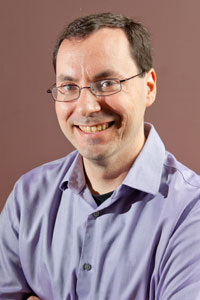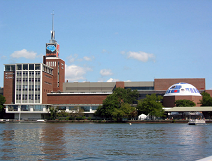
Addressing the Computing Technology-Capability Gap: The Coming Golden Age of Design
Traditional performance and energy scaling benefits based on technology improvements have slowed greatly. At the same time the demand for computing capability is unsatiated with new killer applications emerging in the domains of robotics, automotive, and machine-intelligence. Lack of progress in technology scaling will necessarily place more demands on the computer architecture and software layers to deliver capability. This talk outlines two promising directions for research in this coming Golden Age of design. First, hardware acceleration in the form of datapath and control circuitry customized to particular algorithms or applications has surfaced as a promising approach, as it delivers orders of magnitude performance and energy benefits compared to general-purpose solutions. To broaden the scope of applicability for accelerator-based architectures it will be necessary to preserve flexibility and provide programmable solutions while reducing design costs. At the same time, the last decade has seen great progress in compiler and architecture approaches to exploit parallelization. Continued research investment in this direction will lead to solutions with better scalability and even more radical approaches are on the horizon. This talk will draw highlights from several research projects in both directions.
Bio:
David Brooks is the Haley Family Professor of Computer Science in the Harvard John A. Paulson School of Engineering and Applied Sciences. Prior to joining Harvard, he was a research staff member at IBM T.J. Watson Research Center. Prof. Brooks received his BS in Electrical Engineering at the University of Southern California and MA and PhD degrees in Electrical Engineering at Princeton University. His research interests include resilient and power-efficient computer hardware and software design for high-performance and embedded systems.



